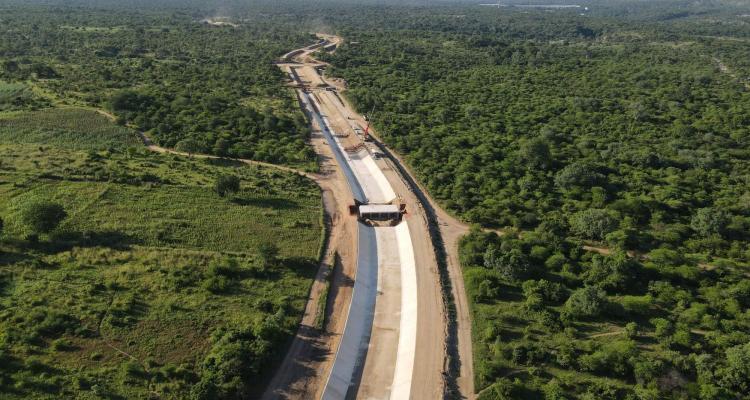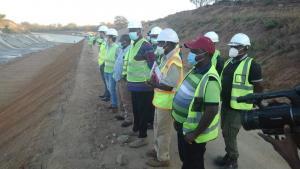
Minister of Agriculture, Irrigation and Water Development Lobin Lowe has challenged authorities implementing the Shire Valley Transformation Project to ensure that intended beneficiaries of the project start utilising it as early as possible instead of waiting for the finalisation of the entire project.
The Minister made the call when he inspected progress of the multibillion-kwacha world bank funded project recently where he was told that works of the first phase of the canal is now at 36 percent from its intake and the first 6 kilometers.

During the visit, the Minister disclosed that he has already contacted some potential beneficiaries of the project, Phata cane growers, who have expressed their readiness to start utilising the waters from the canal as soon as possible.
The Minister, however, said there is still need for more engagements with Illovo sugar company which has expressed reservations in utilising the project as it has already invested in its irrigation project and therefore considers a switch from their irrigation system to the Shire Valley Transformation irrigation system as a loss.
“The idea is that at some point as the country we should be able to start utilising the waters from the project. We shouldn’t wait until the whole canal is completed. Say at 10 kilometers, farmers should be able to utilise from the waters resources and we will learn from that end.
“That’s is why am engaging with all stakeholders of the project so that they are ready to start utilising it as soon as possible and we will learn from the few fields who will cultivate”, said Minister Lowe.
On his part, coordinator for the Shire Valley Transformation project, Stanley Chakhumbira Khaira said they have already demarcated and adjudicated 23 000 pieces of smallholder farmers land which is about 13 000 hectors and that the farmers will start utilising the waters from the canal as early as 2023.
Considered as one of the biggest projects in the entire Southern African Community (SADC), the Shire River Transformation project started in 2018 and has a time frame of fourteen years as it expected to finish in 2031.
When the project is concluded it is expected to increase agricultural activities and commercialization for about 56 000 smallholder farmers of the two districts of Chikwawa and Nsanje through irrigation agriculture.














